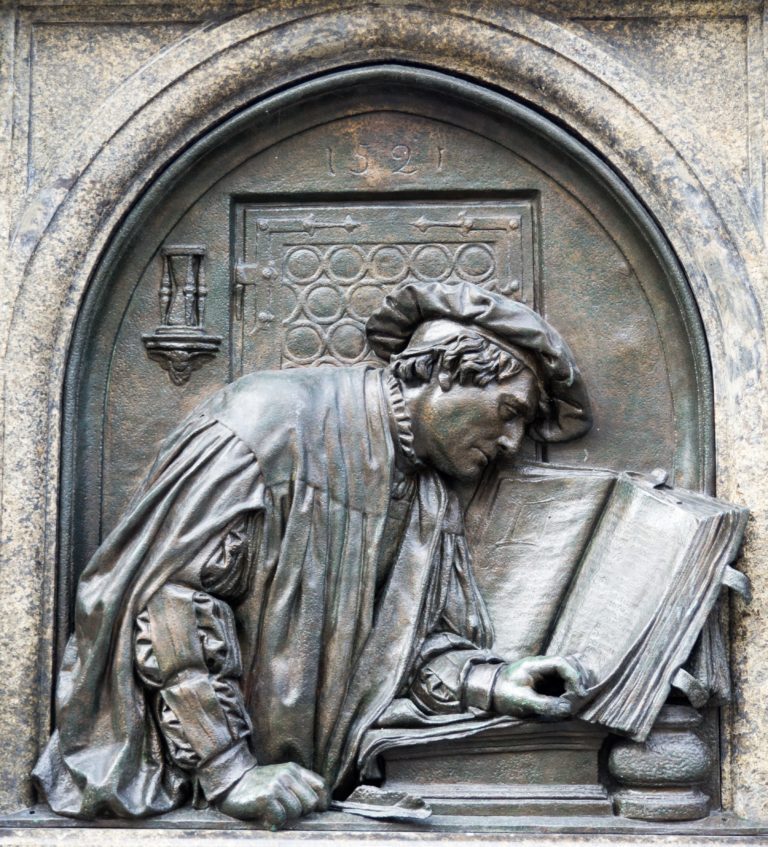October 31, 2019 is Reformation Day, the 502nd anniversary of what most scholars agree is the beginning of the Protestant Reformation (the “Reformation”). As most of you know, the seminal act of the Reformation was arguably the posting of a list of ninety-five statements or theses (written in Latin) on the door of the castle church in Wittenberg, Germany by an Augustinian monk named Martin Luther (1483-1546). These statements condemned the corrupt practice of the Roman Catholic Church regarding indulgences, which were payments for the forgiveness of sins. Consequently, this raised the ire of the papal authority in Rome. The text of the ninety-five theses may be found at this link: https://www.theopedia.com/95-theses.
By posting this list of statements, Luther was merely initiating an academic disputation concerning indulgences and other matters such as repentance and the forgiveness of sins being of God, not the pope. A disputation is an academic exercise among fellow academicians of formal debate and defense of some thesis. Luther was not trying to destroy the Roman church or the papacy or create an ecclesiastical controversy, which is clear from the introductory paragraph to his ninety-five theses. He wanted to correct biblical errors in the Roman Catholic church, re-direct the church to the theology of Augustine, who taught the ultimate authority on religious matters was God, not the officials of the Roman church.
These theses were translated into German and they rapidly spread throughout Germany and eventually to Rome. The reactions of the papacy to Luther resulted in an unyielding response from Luther and his supporters that culminated in what we call today the Protestant Reformation.
Luther reflected on his role in the Reformation in a sermon given in 1522 and speaking of the word of God said:
I will preach it [the Word], teach it, write it, but I will constrain no man by force, for faith must come freely without compulsion. Take myself as an example. I have opposed the indulgences and all the papists, but never by force. I simply taught, preached, wrote God’s Word; otherwise I did nothing. And then while I slept, … the Word so greatly weakened the papacy, that never a prince or emperor inflicted such damage upon it. I did nothing; the Word did it all. Had I desired to foment trouble, I could have brought great bloodshed upon Germany. Yea, I could have started such a little game at Worms that even the emperor would not have been safe. But what would it have been? A fool’s play. I did nothing; I left it to the Word.
Martin Luther saw how the Roman church assigned power to the church and the pope. But Luther knew that all power was from God through the gospel of Jesus Christ breathed out of the mouth of God and neither did power lie in Luther himself or any of the reformers. He gave all glory to God, not the church.
The apostle Paul’s inspired words to us in 1 Corinthians 10:31 says “Whether therefore ye eat, or drink, or whatsoever ye do, do all to the glory of God” (KJV). Just as Luther did, we simply need to be obedient to God and prayerfully exercise our God-given gifts and talents in accordance with the word of God and God will see that His will be done to His eternal glory.
Reformed Theology traces its origins to the Protestant Reformation and work of Martin Luther, Huldrych Zwingli and John Calvin.

